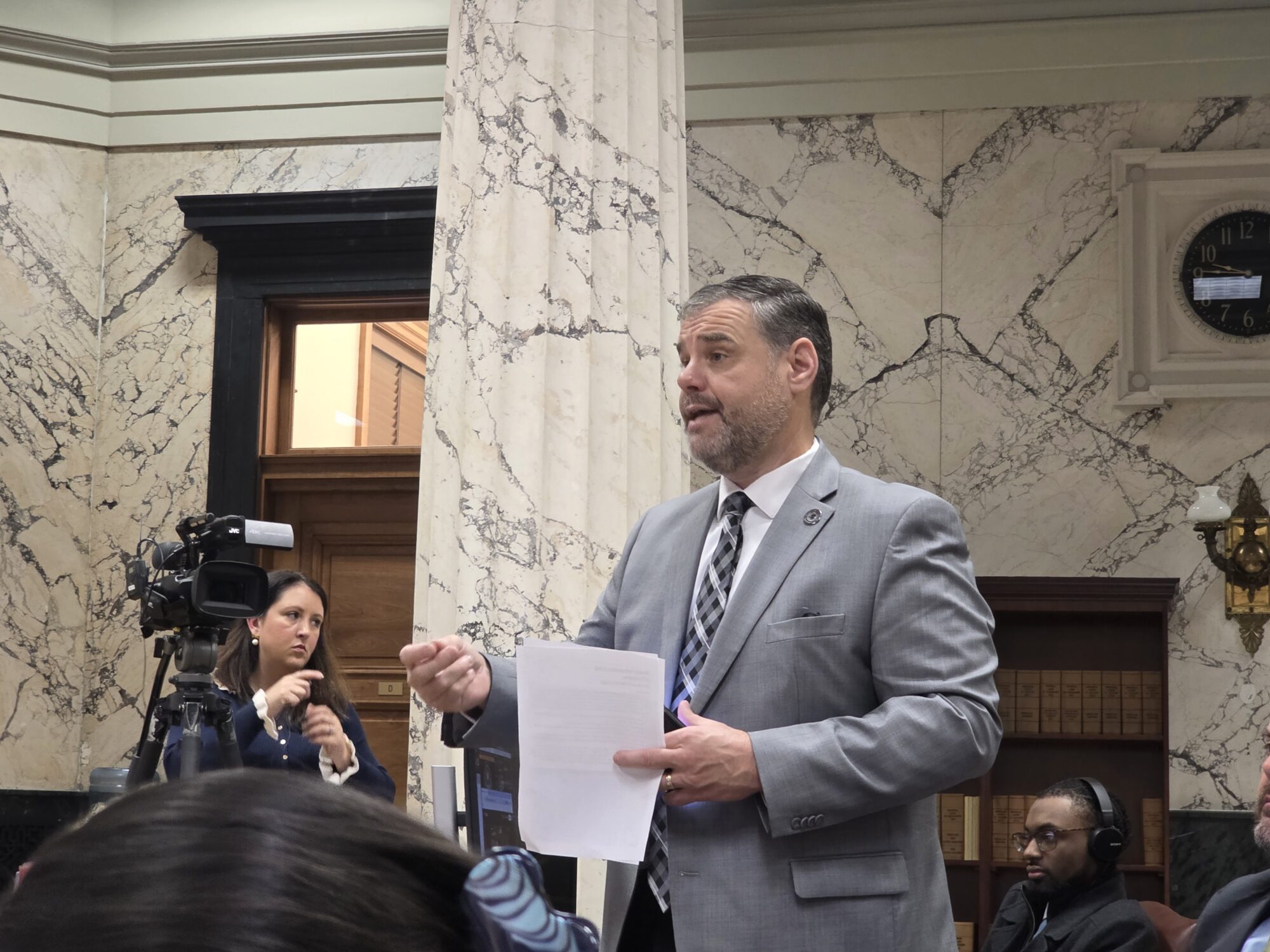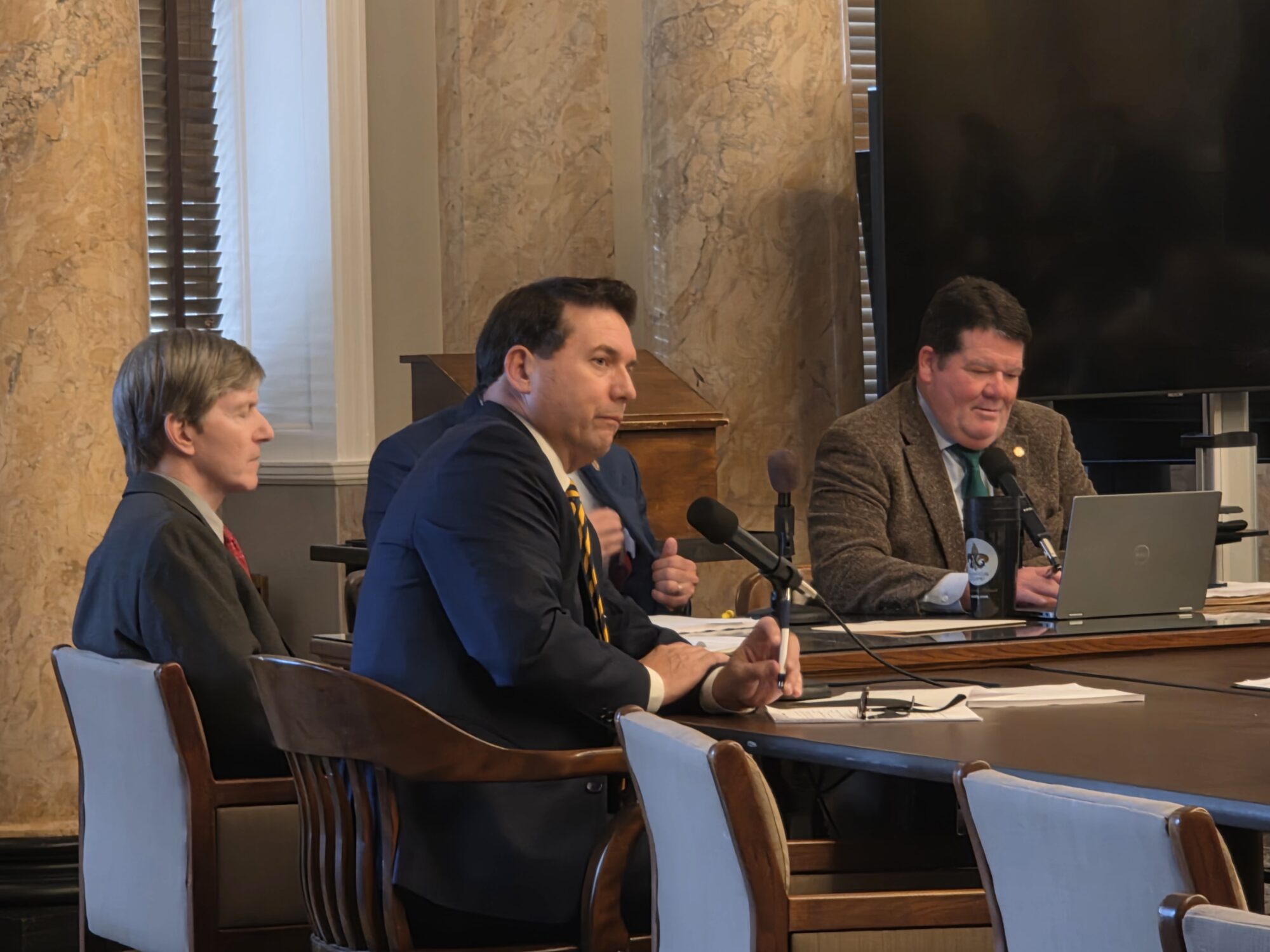Suspended jurist Bobby DeLaughter’s actions in manslaughter case reviewed
Mississippi’s judicial watchdog group is examining another case involving Hinds County Circuit Judge Bobby DeLaughter – this one about his handling of a manslaughter case involving the death of a motorist.
DeLaughter is already temporarily suspended from the bench, pending review by the Judicial Performance Commission, on a bribery allegation involving a ruling in a legal fees dispute that went in favor of now imprisoned trial lawyer Dickie Scruggs. Scruggs is serving a five-year sentence for attempted bribery of a judge in another legal fees lawsuit.
According to sources close to the investigation, the probe of DeLaughter has now expanded to include the case involving former Jackson police officer Jeffrey Middleton, who pleaded guilty in March 2007 to culpable negligent vehicular manslaughter in the June 15, 2005, death of 23-year-old Desmonde Harris of Jackson.
DeLaughter withheld the guilty plea – some experts now say he could not – and cleared the way for Middleton to have his manslaughter conviction wiped from the books.
In so doing, DeLaughter relied on Mississippi’s “nonadjudication statute,” which allows the withholding of a guilty plea, except in “crimes against the person” – a general reference to violent crimes.
“The nonadjudication statute excludes crimes against persons, and manslaughter is a crime against a person,” said former judge and prosecutor Patricia Bennett, a professor at Mississippi College School of Law.
The Judicial Performance Commission is looking at DeLaughter’s withholding of Middleton’s guilty plea to culpable negligent vehicular manslaughter in exchange for him doing public service.
DeLaughter’s attorney, Cynthia Speetjens of Madison, could not be reached for comment
Middleton’s lawyer in the criminal case, Tommy Mayfield of Jackson, said it would be inappropriate of him to comment.
Former longtime Hinds County District Attorney Ed Peters also represented Middleton.
Mayfield worked with DeLaughter and Peters in the district attorney’s office.
In support of the nonadjudication, Mayfield cited in court papers a 2006 attorney general’s opinion that says a judge has the authority to decide whether an event constitutes a “crime against the person.”
Asked about the Middleton case, Brant Brantley, executive director of the commission, replied, “I can neither confirm or deny the existence of any complaint or investigation on the part of the commission.”
In their accident reconstruction, Jackson police concluded Middleton – who was in his patrol car but wasn’t responding to any emergency call – ran a red light, traveling between 97 and 101 mph before smashing into Harris’ car.
But in a recent sworn statement, Middleton, who still lives in the Jackson area, insisted the light was green, denying he traveled at such a high speed.
“It was clearly communicated to me by my criminal attorney that if I would help the Harris family get money out of the city of Jackson (i.e., with my testimony), the family would ask the district attorney’s office to lighten my sentence instead of pushing for the maximum sentence,” Middleton said.
“Upon information that was communicated to me by my criminal attorney, the father of Mr. Harris was agreeable with this arrangement, but it took some convincing for the mother to agree. She finally agreed, and I was sentenced to two years under the non-adjudication statute to probation,” he said.
Clarion Ledger
8/10/8






